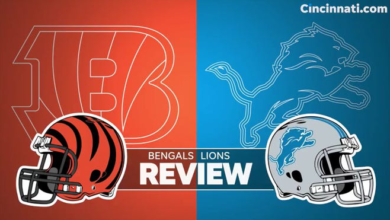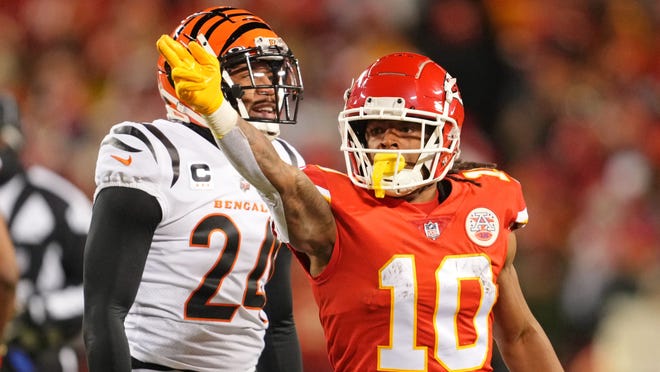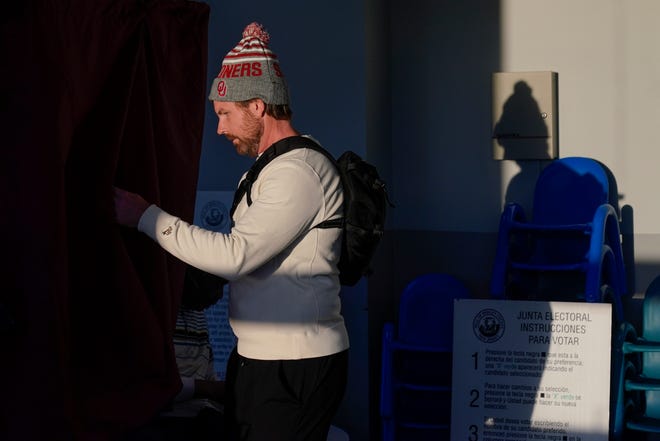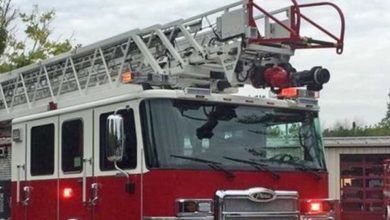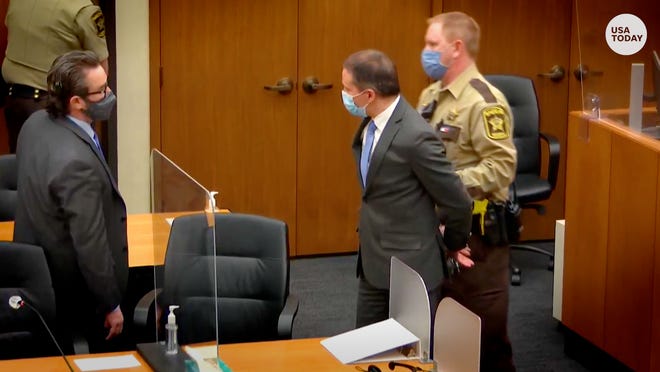
MINNEAPOLIS — Now that fired police officer Derek Chauvin has been convicted on all three counts against him, he can still file an appeal. But the odds are not good, considering some 90% of appeals are denied across the United States.
An appeal in the case is a virtual certainty. But what issues Chauvin's lawyers raise to the appellate court are an open question, according to criminal defense experts.
The most likely avenue of appeal is the massive publicity given to the case and the judge’s denial of repeated requests by lead defense attorney Eric Nelson to move the case out of Minneapolis or sequester the jury throughout the trial to shield them from any and all news or mention of the case.
Judge Peter Cahill, known as a careful jurist, refused to grant Nelson’s requests — made at the beginning of the court case and throughout the trial, particularly after the fatal shooting in nearby Brooklyn Center of a 20-year-old Black motorist by white officer there. The killing of Daunte Wright just 10 miles from the Chauvin trial sparked ongoing protests and violence throughout the mostly blue-collar, diverse suburb of about 30,000 residents.
After the verdict:Derek Chauvin led away in handcuffs after guilty verdict in Minneapolis courtroom
Nelson again asked to sequester the jury at the close of the trial after news that Democratic U.S. Rep Maxine Waters of California demanded a guilty verdict and urged more people to protest police violence against Black civilians.
Waters' actions upset Cahill, who has on numerous occasions chastised public officials — including after news of the $27 million civil settlement with the city for the Floyd's family during jury selection — for commenting on the trial or creating news off the case.
President Joe Biden also said Monday that the evidence at the trial was “overwhelming,” after calling the Floyd family once the jury had been isolated to deliberate.

"I've come to know George's family," the president told reporters, adding that the Floyd family is going through "pressure and anxiety."
"They're a good family," he said. "And they're calling for peace and tranquility."
Biden said he's praying the verdict the jury returns is "the right verdict, which is – I think it's overwhelming in my view.” Biden would not clarify what he meant by “overwhelming” or “the right verdict.”
'It can't stop here':Biden, after Chauvin verdict, calls for passage of George Floyd bill
After the verdict, Chauvin was quickly transferred from the custody of the Hennepin County Sheriff's Department to the Minnesota Department of Corrections. The DOC booked Chauvin at 4:55 p.m. and put him in a segregated unit, called the administrative control unit, of the Minnesota Correctional Facility-Oak Park Heights.
"This type of restricted housing is not disciplinary in nature," according to the DOC's site. "Sometimes it is used during pending investigations or when continued presence in the general population could pose a particular safety concern."
Chauvin will be assigned an orange jumpsuit with a white T-shirt, a corrections spokeswoman said.
MCF-Oak Park Heights houses about 475 inmates, all of whom are designated at either maximum or close custody levels, according to the DOC.
Nelson's office did not answer a request for comment.
But Cahill's refusals to move or sequester the jury came as little surprise to Ted Sampsell-Jones, an criminal defense appeals attorney and professor in St. Paul, next door to Minneapolis.
“That would have been a huge imposition on the jurors to make them live away from their family for a month,” in addition to missing work, said Sampsell-Jones, who teaches at Mitchell Hamline School of Law in St. Paul. “I don't think it would really have helped given they would have had to take away their cell phones…then it also would have made it much harder to get a jury,"
People simply wouldn’t have wanted to serve, he said, and there would have been many more hardship grants to potential jurors during voir dire, which began March 8 and ran through 300-plus men and women before settling on the jury of 14 including two alternates now dismissed.
“It was a totally normal ruling," Sampsell-Jones said. "But that's something where defense counsel made the request, probably knowing or anticipating the request would not be granted but giving the defense an issue to appeal."
Jon J. Lee, also a law professor at the University of Minnesota Law School, agreed the inescapability from news and social media coverage — jurors were not barred from using social media during the trial — was a top target for appeal. Even television shows outside of immense news coverage, such as Saturday Night Live, have highlighted the trial and suggested there was no option but a guilty verdict.
“Part of the concern here,” Lee said, “is that the judge has instructed the jury not to listen to the news. But as Chauvin’s attorney has argued, the collective media coverage of this trial extends well beyond news coverage, and in particular in light of the shooting in Brooklyn Center. I think that was difficult to avoid hearing about for (juror) residents in the area.”
'More work to be done':Chauvin murder conviction brings relief and resolve to keep fighting for justice in George Floyd's name
Another route for appeal is Nelson's claim after closings that state prosecutor Jerry Blackwell, in his rebuttal, crossed the line Monday and potentially committed prosecutorial misconduct for "belittling" Nelson's case. Blackwell had referred to Nelson's defense as creating "stories" and a "shading truth" to confuse the jury during his rebuttal of Nelson's closing argument.
Nelson had called for a mistrial based on the statements — but Cahill denied the move.
Still another avenue for appeal that Lee foresees is the third-degree murder charge. Nelson, Lee said, “will challenge that Chauvin cannot be convicted on that count because of the statute and the way that some courts have interpreted it as covering a situation in which the defendant only presents a risk to one person and not multiple people. I think that legally that is an argument that could have merit.”
The problem here is that some attorneys and judges read the statute for third-degree murder as stating that it only applies to multiple people being at risk, not just one — or in this case, just Floyd from Chauvin’s restraint of him.
Cahill initially sided with those saying it only applied in cases where multiple people were endangered. But after the appellate court ruling, which came on the third day of Chauvin’s jury selection, Cahill said he agreed the case — that of another officer, Mohamed Noor, charged in the 2017 killing Australian-American Justine Ruszczyk — set immediate precedent and reinstated the third-degree murder charge against Chauvin.
Sampsell-Jones also pointed to the third-degree murder charge, but mentioned the jury instructions on second-degree murder.
“Minnesota law is way out on a limb when it comes to how felony second-degree murder is defined,” he said. “We're one of the only states that allows assaults to be used as a felony for felony murder. And then, the definition of assault that the judge gave yesterday was a little weird.”
What he is referencing is Cahill’s allowance of the prosecution’s request that the instruction be written for the charge in a way that Sampsell-Jones said may conflict with the statute.
“Case law in Minnesota kind of suggests that assault might be a strict liability offense,” he said. “And so the prosecution asked for instruction on that. And the judge gave a little bit of a modified version — so kind of saying, even though the statutory definition of assault is the intentional infliction of bodily harm, the instructions kind of said you don't actually need to intend to inflict bodily harm.”
Other possibilities include Chauvin, who was taken in handcuffs from Cahill's courtroom Tuesday after the verdict, claiming ineffective assistance of counsel. It would be an appeal that would have a lesser chance of succeeding, according to experts, but one that could make its way into defense materials. There were not many objections voiced by Nelson, which may have been a strategic tactic to not upset the jury or drag out the testimony and memorialize it more.
But consider the second day of trial, when Darnella Frazier took the stand. She was the girl, then 17 years old, who took the bystander video and uploaded it to social media, where it went viral, drawing hundreds of thousands into the streets around the country and world to protest police brutality and starting some riots that set places like neighborhoods in Minneapolis ablaze.
Tearfully, recalled in her testimony the more-than nine minutes that she watched George Floyd struggling under the knee of Chauvin. Until Floyd struggled no more. She recalled how this could have been any number of her family members since they, too, are Black.
"When I look at George Floyd, I look at my dad, I look at my brothers, I look at my cousins, my uncles," Frazier said. She said she has stayed up some nights "apologizing and apologizing to George Floyd for not doing more and not physically interacting and not saving his life."
But, she said, "it’s not what I should have done. It’s what he (Chauvin) should have done."
Nelson did not object to cut off the emotional testimony — something that could be grounds for appeal, said Chicago defense attorney Craig Tobin.
“This was a tough case,” Tobin said. “You've got a nine minute video the entire world has seen, and he dies. So you're not going to be the most well liked defendant…So if you got a tough case, you have to realize that it becomes extremely important in case like that to preserve the appellate record (with objections). It may be your best chance at getting a very cold, distant legal analysis of the issues. You at least have to keep that in mind and you owe that to the client.”
Eric Ferkenhoff is the Midwest Criminal Justice Reporter for USA Today Network.
Source link



